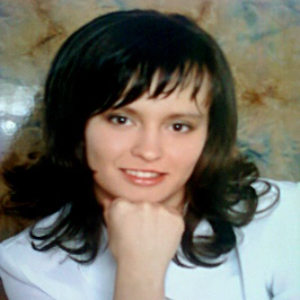Title : Hepatoprotective effects of the probiotic strains bacillus amyloliquefaciens ssp. plantarum on the model of rat hepatocyte lesion by tetrachloromethane
Abstract:
Due to the wide range of biological activities and positive effects on the body preventive and therapeutic efficacy of probiotics Bacillus amyloliquefaciens ssp. plantarum are intensively studied in various diseases (gastrointestinal disorders, cancer, allergic and HIV diseases, diabetes). Of particular interest in this matter is the study of the effects of probiotics on stress-sensitizing cells of animals and humans, in particular on hepatocytes. Imbalance of hepatocyte redox-homeostasis plays an important role in the course of inflammatory, metabolic and proliferative liver diseases. Reactive oxygen species primarily influence on hepatocyte proteins, lipids and DNA. Therefore, inactivation and elimination of oxidants in hepatocytes is an important process. In our study, rat liver cell damage was initiated by carbon tetrachloride (CCl4). This is one of the most well-known hepatocarcinogen used to create experimental models of hepatopathies. The toxic effect of CCl4 is realized both by direct action on cell membranes and by its metabolic transformation into hepatotropic free radicals with the participation of cytochrome P450. Based on this model of hepatocyte damage in animals, the study of hepatoprotective action of microorganisms has achieved some success. However, the presence of such effects for Bacillus amyloliquefaciens ssp. plantarum ?MV ?-7142 and Bacillus amyloliquefaciens ssp. plantarum ??V ?-7143 remain unexplored to date.
It was found that catalase activity of rat hepatocytes decreased by 288.5 mM/min/mg of protein and antiradical activity (ARA) – by 21.54% at their treatment by CCl4, compared with the control sample. At the same time, the levels of lipid hydroperoxides (LOOHs) increased by 2.74 relative units, and malonic dialdehyde (MDA) by 4.35 μM/L, respectively, to control. However, at post-treatment of stress-induced hepatocytes by cell-free extracts (CFE) of the studied probiotic strains, the aggressive effect of CCl4 was reduced. Thus, at post-treatment of hepatocytes by the CFE of strain IMV B-7142, the catalase activity of mammalian cells increased sharply and exceeded that in the control variant by 196.7 mM/min/mg of protein and by 485.2 mM/min/mg of protein in stress-induced sample. However, the CFE of strain IMV B-7143 did not affect this enzyme activity. The antiradical activity of CCl4-treated hepatocytes to 2,2-diphenyl-1-picrylhydrazyl radical at their post-treatment by CFE of IMV B-7143 increased by 21.04%, and the CFE of IMV B-7142 – by 38.74%, respectively, to the stress-induced sample.
At the influence of the CFE of probiotics on stress-induced hepatocytes a decrease in the levels of LOOHs and MDA was observed in them. Thus, at post-treatment by the CFE of the strain IMV B-7143 the concentration of LOOHs decreased by 2.88 relative units, MDA by 3.50 μM/L, compared with the stress variant. After post-treatment by the CFE of the strain IMV B-7142 the level of LOOHs decreased by 3.26 relative units, MDA by 6.06 μM/L, compared with the stress variant.
According to obtained results the CFE of B. amyloliquefaciens ssp. plantarum IMV B-7142 and B. amyloliquefaciens ssp. plantarum IMV B-7143 normalize the redox-status of CCl4-damaged rat hepatocytes. The obtained experimental data can be used in further preclinical studies of these probiotic strains for create new hepatoprotective preparations.




